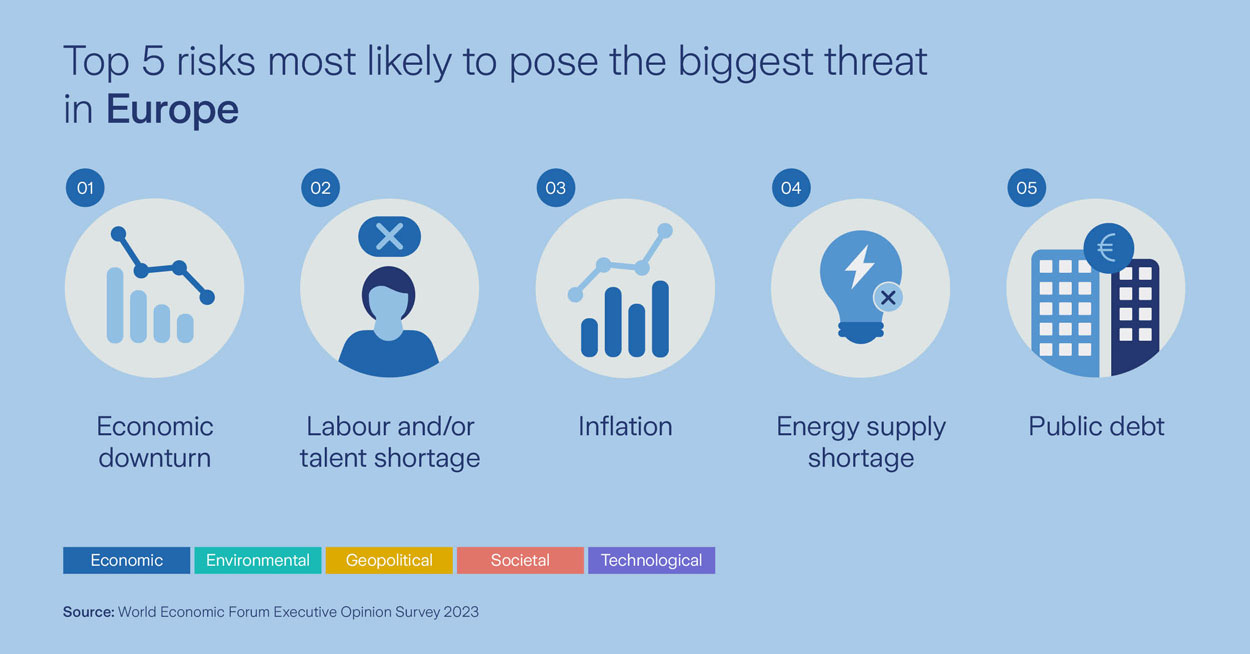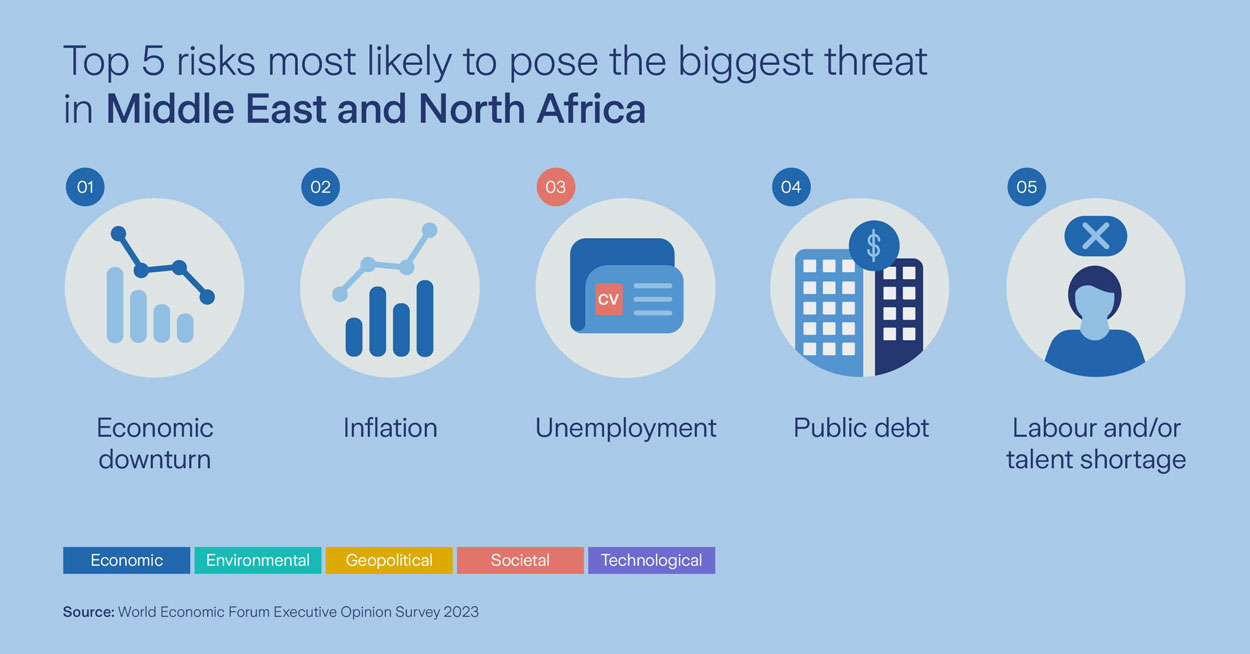North American businesses buck trends on attitudes toward risk
Global risksArticleNovember 14, 2023
Diseases, disasters and economic risks dominate the minds of North American business leaders, according to the World Economic Forum’s Executive Opinion Survey 2023.
Economic pressures are a key concern for leaders across Europe, the Middle East and North Africa (EMEA), but regional variations reveal a complex risk landscape and differing priorities. Notable, too, is the absence of climate-related risks from the top concerns of EMEA businesses, despite multiple extreme weather events across the region. In the past year, the region has dealt with everything from record-breaking heat to hailstorms.
Inflation, labor shortages, and public debt all feature in the top five, but vary in their importance between different geographies. Energy supply is a key concern for European leaders but much lower on the agenda for their MENA peers, who are more concerned about risks related to water supply and unemployment.
The threat of an economic downturn tops the risk agenda in EMEA at both the regional and national level, remaining the greatest perceived risk to business and reflecting similar trends in the G20 and Northern America. The European Commission has downgraded its forecast for growth in the EU to 0.8 percent in 2023 from a previous projection of 1 percent, while the World Bank predicts that growth will shrink to 3 percent in 2023 in the Middle East and North Africa (MENA) compared to 5.8 percent in 2022.
Leaders in Europe and MENA also score the risk of labor shortages in their top five but differ on the perception of its importance.

Talent scarcity ranks as the second greatest risk in Europe ahead of inflation, energy supply shortages and public debt; but MENA leaders rank it fifth behind inflation and public debt.

Unemployment is a far greater concern for MENA leaders, who rank it as their third most important risk while their European peers relegate it to 18. Youth unemployment in MENA countries is the highest in the world according to the International Labour Organization; in 2019, almost a third (29.7 percent) of young people were unemployed.
It’s notable that interstate armed conflict is the sixth greatest risk to business for European leaders, likely because of the proximity and ongoing financial commitments to the war in Ukraine. Also of note in MENA is the risk of water supply shortage at number seven, and the risk of corporate debt, which ranks at 16, much higher than in other regions.
European leaders place infectious diseases only at number 22, even though one in 30 Europeans is still suffering from the long-term symptoms of COVID-19.
It is also unfortunate to see that risks relating to the failure of climate adaptation and the failure of climate mitigation – which ranked prominently at number eight and 12 last year – have dropped to 16 and 19 respectively in 2023.
Climate change is impacting business, and there is widespread consensus on the importance of reaching sustainability goals. The survey suggests, however, that the pressure of dealing with the volume and intensity of short-term crises are weighing on leaders’ ability to also manage the imminent threat from climate change.
Businesses, governments and insurers should continue working together to manage environmental risks and start urgently building the resilience they need to adapt to and mitigate the increasingly damaging impacts of climate change.




